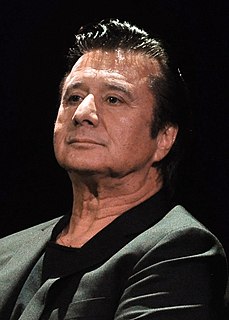A Quote by Homer
Thus have the gods spun the thread for wretched mortals: that they live in grief while they themselves are without cares; for two jars stand on the floor of Zeus of the gifts which he gives, one of evils and another of blessings.
Related Quotes
A good simulation, be it a religious myth or scientific theory, gives us a sense of mastery over experience. To represent something symbolically, as we do when we speak or write, is somehow to capture it, thus making it one's own. But with this appropriation comes the realization that we have denied the immediacy of reality and that in creating a substitute we have but spun another thread in the web of our grand illusion.
An irreligious man is not one who denies the gods of the majority, but one who applies to the gods the opinions of the majority. For what most men say about the gods are not ideas derived from sensation, but false opinions, according to which the greatest evils come to the wicked, and the greatest blessings come to the good from the gods.
Immortality is what nature possesses without effort and without anybody's assistance, and immortality is what the mortals must therefore try to achieve if they want to live up to the world into which they were born, to live up to the things which surround them and to whose company they are admitted for a short while.
Santa Claus is a god. He's no less a god than Ahura Mazda, or Odin, or Zeus. Think of the white beard, the chariot pulled through the air by a breed of animal which doesn't ordinarily fly, the prayers (requests for gifts) which are annually mailed to him and which so baffle the Post Office, the specially-garbed priests in all the department stories. And don't gods reflect their creators' society? The Greeks had a huntress goddess, and gods of agriculture and war and love. What else would we have but a god of giving, of merchandising, and of consumption?
You and I may only be mortals, with all the foolishness and fallibility that that state implies, but we're mortals made in the image of heaven. The gods can't do their work without us. So let's be bold, in their cause and in our own. It's our job, we humans, to make manifest that which is unmanifest-and to raise into consciousness, in this material dimension, that which had been known before only in heaven.
While it is possible for intelligence to increase the range of benevolent impulse, and thus prompt a human being to consider the needs and rights of other than those to whom he is bound by organic and physical relationship, there are definite limits in the capacity of ordinary mortals which makes it impossible for them to grant to others what they claim for themselves.
Assuredly whatsoever things are fabled to exist in deep Acheron, these all exist in this life. There is no wretched Tantalus, fearing the great rock that hangs over him in the air and frozen with vain terror. Rather, it is in this life that fear of the gods oppresses mortals without cause, and the rock they fear is any that chance may bring.
All this care for the world, we must believe, is taken by the Gods without any act of will or labor. As bodies which possess some power produce their effects by merely existing: e.g. the sun gives light and heat by merely existing; so, and far more so, the providence of the Gods acts without effort to itself and for the good of the objects of its forethought. This solves the problems of the Epicureans , who argue that what is divine neither has trouble itself nor gives trouble to others.
But there is no such man; for, brother, men
Can counsel and speak comfort to that grief
Which they themselves not feel; but, tasting it,
Their counsel turns to passion, which before
Would give preceptial medicine to rage,
Fetter strong madness in a silken thread,
Charm ache with air and agony with words.



































